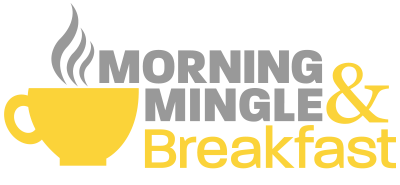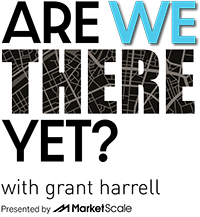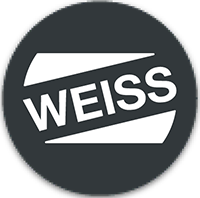2023 Agenda
All times listed are Central Time Zone (CT)
TUESDAY CONFERENCE PROGRAMMING
This session runs from 9:00 AM - 11:55 AM.
This session will review the top five innovations in robotic welding today, as well as provide a look at future technologies on the horizon. Whether you are considering your first robotic welder or expanding your current fleet of robots, this session will provide information you can use today, tomorrow and in the future.
Attendees will learn about the latest advances in visual intelligence and how leading manufacturers are using these solutions to increase team cohesion, increase capacity, reduce near-misses and increase yields. Attendees will also learn how this technology can reduce friction around handoffs between robots/automation and human operators.
Conference Center Foyer
- 4 Key elements of achieving buy-in to change
- Techniques to implement in your own organization
- The value of implementation at speed
- Working with an already-busy organization and executives
Conference Center Foyer
- Provide a current and insightful assessment of labor market conditions
- Identify the key elements that make an organization attractive to top talent
- Share best-in-class hiring strategies including metrics and practices
- Convey the top factors that drive talent retention
- Deliver practical and actionable advice on what businesses can do to become better at attracting, hiring, and retaining workers
However, robots can be limited by their end effectors. Once a robot has been equipped with a gripper designed for a specific part, it becomes restricted in what it can do. The robot can’t pick up a part with a different size or shape, nor can it perform some other task, such as deburring. It was with this hurdle in mind that automated tool changers were invented.
In this presentation, you’ll learn what tool changers are, how they work, when to use them, when not to use them, options, features to look for, tips for implementing them, and example use cases.
Now, advances in robotics and artificial intelligence are promising to overcome these limitations. What does this mean for manufacturing and how does it change the paradigm for reshoring, localized and distributed manufacturing, and product life cycles? Get answers to these questions and more in this presentation.
Conference Center Foyer
- Streamline complex manual workflows for greater efficiency
- Enhance quality control to improve yield and eliminate rework
- Capture manual process data and improve traceability for a more complete view of manufacturing operations
- Reduce the time and cost of recruiting and workforce development through enhanced training
Adrian Choy, Robotic Product Manager, Omron Automation
Hall A
 Welcome Reception & Taste of Rosemont
Welcome Reception & Taste of Rosemont


Learning Theater Presentations
The ASSEMBLY Show's Learning Theater Presentations, presented by exhibiting companies right on the exhibit hall floor, will cover various topics and demonstrate expertise on some of the latest technological advances in assembly.
Theater #1
Reliable Robotic Leak Detection Enabling Smart Manufacturing of Refrigeration and Airconditioning Systems
Theater #2
What is Your Connected Environment Strategy? A Framework for Implementation.

Theater #1
Introduction to Parts Feeding – Parts Singulation for Robot Automation
Attend this session and learn:
- How to select the right parts feeder
- Industry Trends
- Getting to know the essentials
- Pitfalls to avoid

Community Hub - Booth #1113
Learn More About Guided Tours
Creform Corp.
Indeva
SUS America Inc.
UNEX Manufacturing
Theater #2
Building a Competitive Edge: The Importance of Digital Transformation for Small to Medium-Sized Factories
This session will cover:
- How mid-sized factories can start their digital transformation journey without creating culture shock.
- The value of a connected shop floor to various departments e.g. Quality, Operations, and Engineering.
- How easy it is to get started with a live demo! No code implementation and no consultants.
- How to take advantage of automatic data collection from over 1,900 devices - available on day 1.

Theater #1
Tracer Gas Leak Testing vs Air Leak Testing – Improving Speed and Reliability

Theater #2
Get Your Plant Future-Ready

Community Hub - Booth #1113
Learn More About Guided Tours
FANUC America Corp.
IAI America Inc.
SCHUNK
MTA Automation Inc.
Theater #1
Predictive Quality is the Key to EV Production Scaling
In this presentation, Greta Cutulenco will introduce ways that manufacturers in the EV space can use data to reduce test times, ensure part quality, and accelerate speed to market. She’ll talk about the importance of investing in digitalization and adopting technologies like machine learning and AI to leverage production and test data proactively. Learn how you can unlock your data – the key to predictive quality and productivity in EV manufacturing.

Theater #2
How Friction Impacts Torque and the Fastening Process
With the torque control assembly method, it is essential to understand friction's role during the fastening process. Friction is a crucial element of torquing a fastener. Understanding friction allows you to establish tightening parameters for your assembly application to ensure a reliable fastening process. Without knowing how torque and friction correlate for an application exposes risks for the manufacturing process to product failures and escalating scrap rate costs.
Gain an understanding of friction in threaded fasteners, the variables that impact torque, and methods to achieve clamp load for a threaded fastener joint.

Theater #1
How to Transform Your Workforce into a Competitive Advantage with AR

Theater #2
Maximize Workforce Agility: Attracting and Retaining the Right Talent at the Right Time

Community Hub - Booth #1113
Learn More About Guided Tours
Bosch Rexroth Corp.
FlexLink Systems Inc.
Glide-Line
Quickdraw Conveyor Systems
 Pub Night Networking Reception
Pub Night Networking ReceptionThis social environment will allow participants to meet new manufacturing professionals and continue to build relationships with existing business partners in a fun and exciting atmosphere. PLUS - The Quality Show participants will be joining us for 'Pub Night' in 2023 for additional networking and comradery!

 Pink Out Day
Pink Out Day
In honor of Breast Cancer Awareness month, Thursday, October 26 is our official “Pink Out Day” to support cancer fighters, admire survivors, honor those lost, and never give up hope to find a cure. Please join fellow event attendees by wearing pink when attending the event and donating to Susan G. Komen Foundation when registering!
Learn More
Hall A, Main Street
 Morning Mingle & Breakfast
Morning Mingle & Breakfast
Hall A

Community Hub - Booth #1113
Learn More About Guided Tours
Delta Regis Tools
Desoutter
Ingersoll Rand
Nitto Kohki USA Inc.
Learning Theater Presentations
The ASSEMBLY Show's Learning Theater Presentations, presented by exhibiting companies right on the exhibit hall floor, will cover various topics and demonstrate expertise on some of the latest technological advances in assembly.
Theater #1
Unveiling the Power of Automation and Value Stream Mapping

Theater #1
AI-based Assembly Verification for Process Compliance and Yield Improvement with Computer Vision

Community Hub - Booth #1113
Learn More About Guided Tours
MS Ultrasonic Technology LLC
Rinco Ultrasonics/Forward Technology Industries
Telsonic Ultrasonics
U.S. Heatstake
Community Hub - Booth #1113
Learn More About Guided Tours
Cetec ERP
Tulip
Ujigami
VKS
Hall A
11:00 AM

11:20 AM

11:40 AM

1:00 PM

1:20 PM

1:40 PM

2:00 PM
2:20 PM

2:40 PM

1:00 PM - 2:00 PM
Floyd Dickson, Ujigami
Michael Ford, Aegis Software
Dan McKiernan, Epicor Software Corp.
Kyle O’Reilly, VKS
Whether you’re looking for enterprise resource planning software or paperless work instructions, you’ll find it at The ASSEMBLY Show. At least a dozen of suppliers presses, riveters, and forming machines will be demonstrating their latest products at the show. Before you hit the show floor, tune into this exclusive panel discussion featuring executives from four of the nation’s top suppliers of pressing and forming equipment: BalTec, Orbitform, Promess, and Schmidt.
You will learn:
- How software can error-proof production.
- What data to collect, how to collect it, how to analyze it, and how to protect it.
- Tips and advice for implementing and applying different types of software in your operation.
- How software can prevent downtime.
- How to connect machines and tools to an enterprise network.





1:00 PM - 2:00 PM
Presses and Forming Equipment Panel Discussion
Anthony Gianettino, BalTec Corp.
John Lytle, Promess Inc.
Jake Sponsler, Orbitform
David Zabrosky, Schmidt Technology Corp.
Alternatively, assemblers can simply insert one part tightly into a hole in another part. The assembly stays in place through friction and the force of the two parts pushing against each other. In most cases, the press fit is strong enough to stand on its own. In others, the joint is augmented by an additional assembly method, such as adhesive bonding or brazing. Many parts are assembled with press fits, including bushings, bearings, pins, studs, rotors, gears, pulleys and shaft collars. These methods are often much less expensive than bonding, welding or threaded fasteners.
Whether you’re looking for a pneumatic assembly press or a servo-driven orbital forming machine, you’ll find it at The ASSEMBLY Show. At least a dozen suppliers presses, riveters and forming machines will be demonstrating their latest products at the show. Before you hit the show floor, tune into this exclusive panel discussion featuring executives from four of the nation’s top suppliers of manufacturing software: BalTec, Orbitform, Promess and Schmidt.
You will learn:
- The advantages and limitations of manual, pneumatic and servo-driven presses.
- Tips and advice for designing parts for press-fit assembly.
- Tips and advice for designing parts for riveting.
- The differences between orbital and radial forming.
- How to use sensors to monitor, control and error-proof the pressing and forming process.





1:00 PM - 2:00 PM
Our society faces unprecedented economic, social and environmental challenges. Management consultant and author Olivier Larue argues that the basis for solving many of these challenges can be found in a surprising place: the Toyota Production System (TPS).
The TPS offers technical and managerial innovations that eliminate many of the financial, socio-economic and environmental contradictions inherent in business. The result is congruency between several factors and agents of our society that have conflicted in the past. Financially, the TPS creates congruency between a company’s income statement and its cash flow statement by pursuing total efficiency over individual efficiency. Economically, the TPS lessens conflicts between economic growth and environmental stewardship by eliminating overburden, unevenness and waste. Sociologically, the TPS reconciles the creative nature of people with the mundane requirements of modern industrial work by re-introducing craftsmanship into industrial operation.
Whether you are new to the TPS or an established practitioner, you will not want to miss this thought-provoking presentation.







